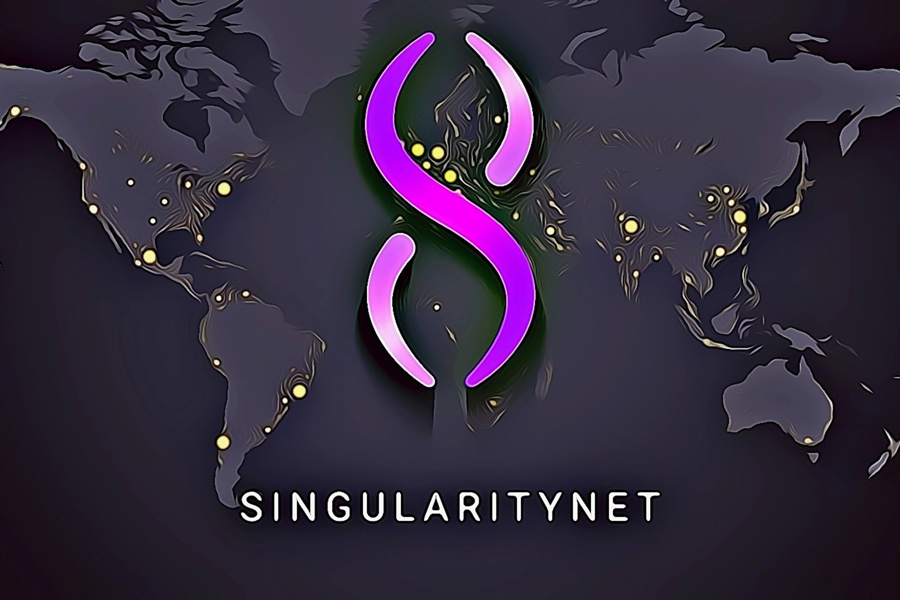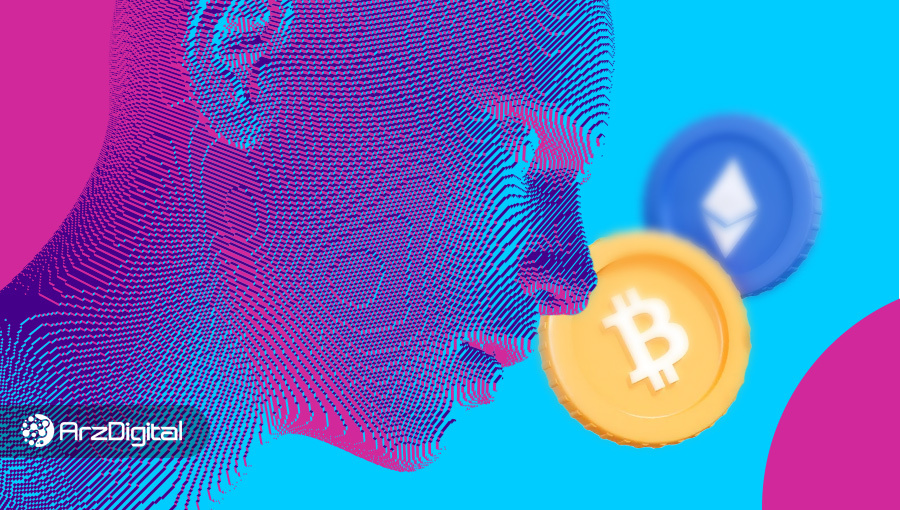What Is The Relationship Between Artificial Intelligence And Digital Currencies?
Artificial Intelligence Market Is Very Hot These Days. Almost Every Major Media Or Social Network We Visit (From News Networks To Linkedin And Twitter), We Come Across Interesting Discussions And Content About Artificial Intelligence And The Possibility Of Its Spread In Various Industries, And Even Discussions About The Connection Between Digital Currencies And Artificial Intelligence.
Also, the popularity and widespread use of content generators chatgpt(ChatGPT) and Midjourney’s text-to-image converter have been greatly enhanced. Unlike driverless cars, whose promise has been years away, these applications are almost ready to be deployed in natural business environments.
Meanwhile, the main question is whether artificial intelligence will be helpful in the digital currency and blockchain industry. In this Note Selected from the CoinDesk website, we want to examine the relationship between digital currencies and artificial intelligence, So stay with us until the end.
Will artificial intelligence be a problem for blockchain?
As we said, artificial intelligence-based programs may soon be used in various industries. This may cause problems for developers of innovative technologies on public blockchains and distributed computing.
In the most optimistic scenario, AI will be a significant competitor for investment fund providers in the not-too-distant future, especially with the damage that fraudsters and fraudsters have done to the digital currency industry in the last year, making it harder to trust investing in this market.
However, blockchains and artificial intelligence profoundly differ in structure and fundamental characteristics. Until now, AI has required large, centralized caches of data to learn from, which can compromise privacy and security, Something that the cryptocurrency communities and the blockchain industry are entirely against.
In addition, dependence on data cache provides conditions for using artificial intelligence for large and centralized companies. One of the first and most important examples is Microsoft’s $10 billion investment in Open AI and ChatGPT, which is a prelude to the limited implementation of this technology in corporate products.
This also conflicts with blockchain’s mission to create a decentralized world, raising doubts about digital currencies and artificial intelligence. But what is the solution?
Is there a solution to that?
 Singularity network
Singularity network
However, there is a very different approach to artificial intelligence that can help address this inherently undemocratic bias. As we know, apart from digital cash, one of the most essential blockchain applications in managing distributed computing resources. Blockchains help coordinate and validate services in a network with the help of tokens that incentivize participants.
For example, Filecoin mentions that it uses blockchain for incentive rewards, distributed cloud storage management, and a rendering network that uses blockchain for distributed complex graphics computing.
Another exciting example is BitTorrent. BitTorrent started as a non-tokenized peer-to-peer file-sharing network. However, in 2017, researchers theorized that the network would see more participation if it rewarded its users with tokens for their performance and fast connections.
In 2018, Justin Sun, the founder of Tron, bought this service and suggested setting up a reward system. Of course, we do not approve or reject the BTT token; Because this topic is out of the article’s primary purpose.
Of course, several blockchain projects have extended the logic behind tokenized distributed computing to artificial intelligence. Among these critical projects is the networkSingularity(SingularityNET) mentioned, launched in 2017, and its founder is an experienced researcher named Ben Goertzel.
Composable artificial intelligence
Goertzel researches and has worked on artificial intelligence since the late 1980s. He has written more than 12 academic books in this field, and the popularity of Artificial General Intelligence is attributed to him.
The Singularity Network is one of the relatively rare credible projects at the height of the crazy initial coin supply(ICO) raised capital in 2017. Its token, AGIX, experienced significant growth after Microsoft’s investment in Open AI.
Goertzel often cites Marvin Minsky, one of the great computer science researchers, when explaining this network’s approach to artificial intelligence.
Minsky described the development of artificial intelligence as a “community of minds.” Goertzel also says that Singularity Network has a game-style architecture that combines several little fake bits of intelligence, including a language processor, image generator, pathfinders, and many others. It puts a complete set of them at the user’s disposal. Each may work better in a particular field, But their combination will be powerful and comprehensive.
Since the Singularity network architecture style is open, the user can call the required combination of services in the network. Each of these services may be provided from a different point in the world, But eventually, everyone will be connected to the network so that the user can use the set of services he chooses.
This is similar to how financial service providers operate on innovative contract-based platforms such asEthereumThey use and combine each service and offer it in one package. This feature is called composability.
What is the unique feature of this composability?
Goertzel argues that such a composable network of artificial intelligence could enable the development of artificial intelligence in the same way that digital currencies and intelligent contracts they use about financial affairs are democratic slow; however, it is more like a double-edged sword.
Goertzel goes further and argues that a hybrid environment for AI development, with modules that can each be developed independently, could create a better path for general AI; That is, we can have digital minds similar to human senses.
Meanwhile, there is a technical issue we need to emphasize: AI cannot run on the blockchain. At least with current technology, this would be very slow and expensive.
Singularity Network and similar projects also use blockchains to manage off-chain resources, which has technical risks; Because layers of validation must be implemented to ensure the correctness of inputs to the network and outputs in it.
The philosophy of digital currencies against artificial intelligence
 The WorldCoin project creates unique digital identities for citizens by scanning their irises.
The WorldCoin project creates unique digital identities for citizens by scanning their irises.
Goertzel’s approach to artificial intelligence contrasts with the implicit beliefs of Sam Altman, CEO and co-founder of OpenAI. Altman also collaborates with Alex Blania in the development of the Worldcoin project. A project that aims to create unique digital identities by scanning the irises of citizens worldwide. People who have this unique code can get digital currencies for free.
The WorldCoin project is criticized for its tendency to collect sensitive biometric data. The problem gets worse when we see that this project has an implicit connection with artificial intelligence. This project is currently in the experimental stage, and its goals’ prospects are unclear.
Many social and economic theorists predict that artificial intelligence will create a world of extreme inequality. It might put people like truck drivers and cashiers out of a job. In addition, text and media content producers may lose their jobs. So, since AI is likely to be centrally controlled, all of these wages will end up in the pockets of big companies.
What is the philosophy of Worldcoin?
WorldCoin is specifically equipped to implement the solution that Silicon Valley has provided for this problem: Universal Basic Income (UBI). The idea behind this solution is that once AI destroys all jobs, governments or similar entities should collect heavy taxes from the handful of centralized companies that use AI and redistribute this wealth to the various masses of society.
In addition, WorldCoin’s iris scanning tool, Orb, takes advantage of the blockchain’s transparency feature to ensure that there will be no mistakes in payments and no one can reuse their code multiple times and abuse others.
What will the future be like?
Perhaps the distribution of wealth among members of society leads to more stability and creativity. Still, the prospect of a universal basic income looks like an authoritarian nightmare that places power in the hands of a few. In such a future, a large percentage of society must look to the generosity of a handful of influential people and depend on them. This concept combines the worst features of communist politics and monopoly capitalism.
This is the future that people like Sam Altman and Peter Thiel are happily pushing us towards. The issue we know differs from the mission of blockchain and digital currencies.
The purpose of blockchain technology was to create transparency and prevent the concentration of power in the hands of a few. Digital currencies came to distribute wealth among the people of society in a completely democratic way. Now the revolution created by this industry has been influenced by artificial intelligence, and an unknown future awaits it. For this reason, the prospect of the connection between digital currencies and artificial intelligence seems unclear.
The truth is that distributed AI projects like the Singularity Network at least hint at a more democratic future for the technology. We have to wait and see where this process will go.
Will the digital currency industry and blockchain be able to realize the dream of a decentralized world with the help of artificial intelligence? Or will synthetic intelligence use blockchain for centralist goals like the WorldCoin project? What is your opinion of digital currency users?











